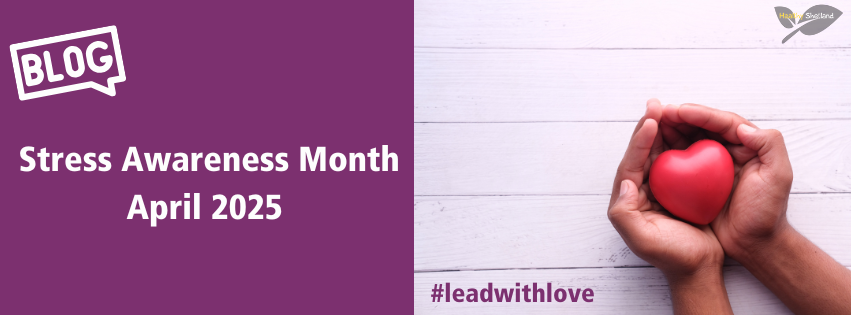
What is stress?
Stress is our body’s way of alerting us to threats or ‘perceived threats’. It is both a physical and pscyhological response in our bodies and is deliberately unpleasant so that we take notice of it.
When we feel stressed our ‘fight or flight’ response can be triggered. This is our body’s way of telling us to fight for our lives or run away to protect ourselves. Historically this would have been very useful, for example cave people hunting an animal – however we still experience this fight or flight response nowadays. This might mean our body reacts like this in dangerous situations, for example if we need to step out the way of a moving vehicle, but it can’t differentiate between this kind of danger and modern day stressors which don’t carry the same immediate threat to life/safety, for example – workplace stress, health worries, exams, debt.
Stress is not always a bad thing – sometimes a manageable amount of stress can help spur us on or be more productive – for example working towards a deadline or competing in a race. You can see this represented in the Human Function Curve Diagram below:

The problem arises when the level of stress we are experiencing outweighs our ability (or perceived ability) to cope and this is when we can start to feel overwhelmed and stuck.
Everyone manages stress differently. What is very stressful for one person may feel very manageable for somebody else. We each have our own ‘Window of Tolerance’ (Dr Dan Siegel, 1999). When we’re working within our window of tolerance we are able to process and successfully respond to the demands of everyday life. When we’re outwith our Window of Tolerance we feel overwhelmed. This video explains more about the Window of Tolerance and Emotional Regulation.
This year’s theme: #LeadWithLove
April marks Stress Awareness Month 2025, a time for you to take charge of your wellbeing and discover effective ways to manage stress. This year’s theme, #LeadWithLove, empowers you to approach yourself and others with kindness, compassion, and acceptance, no matter the challenges we face.
HOW-TO-LEAD-WITH-LOVE-infographic-2025-1Showing compassion to ourselves takes practice –we can be far more critical of ourselves than we would of other people. You may have heard the expression “you can’t pour from an empty cup” – when we apply kindness, love, compassion and acceptance to ourselves we start to ‘fill our cups’. This leaves us feeling more resilient and better able to cope with the challenges we face. You can read more about how to go about practicing self-compassion here How to *actually* practice self-compassion? Try these 5 exercises — Calm Blog
Coping with stress – Resources
Breathing Exercises
We can calm our nervous system by using breathing exercises. Slow, deep breathing activates the parasympathetic nervous system and signals to your brain that you are safe. You can find more on breathing exercises here Breathing and relaxation exercises | NHS inform
Practicing breathing exercises regularly (including when we are not stressed) helps make them more familiar to us and can help us to use them more readily in difficult times.
5 Senses Activity
A quick and accessible way to ground us and bring our attention to the present is to focus on our senses. What are:
- 5 things you can see?
- 4 things you can touch?
- 3 things you can hear?
- 2 things you can smell?
- 1 thing you can taste?
What to do if you are struggling with stress?
Stress Awareness Month resources
This is a placeholder tab content. It is important to have the necessary inforStress Awareness Month 2025 Resource Page – The Stress Management Society including a Kindness Calendar, Appreciation Wall and Workplace Challenges on the #LeadWithLove theme.
Need help?
Breathing Space – 0800 83 85 87